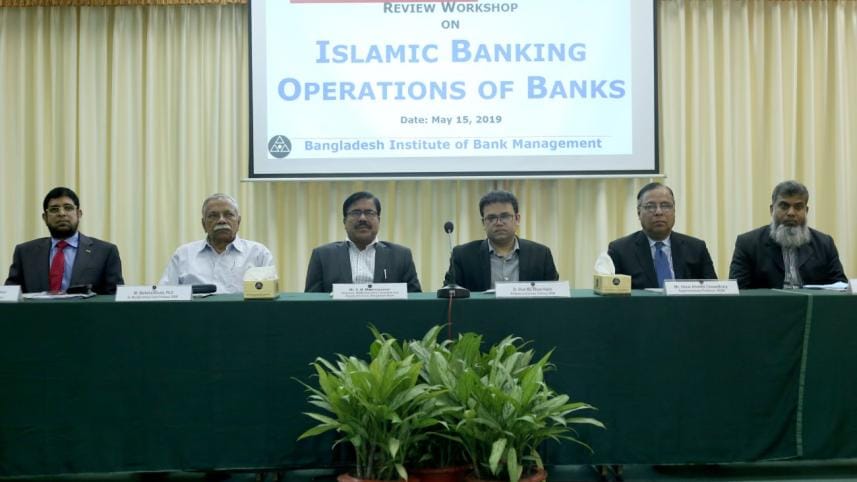Islamic banks’ profitability shrinks in 2018

Shariah-based banks' net profit margin declined to 2.2 percent in 2018 from 3 percent a year earlier at a time when the banking sector's rose, found a recent study.
The banking sector's net profit margin improved to 3 percent from 2 percent last year, according to the study titled "Islamic Banking Operation of Banks-2018".
The findings of the study, which was carried out by the Bangladesh Institute of Bank Management (BIBM), were disclosed at a workshop yesterday. Md Alamgir, an associate professor of the BIBM, presented the research paper.
There are eight Islamic banks in Bangladesh. Besides, many banks have Shariah-based branches or windows. Together, they had a combined deposit base of Tk 237,366 crore on December 2018. Of the deposits and investments, the full-fledged Islamic banks accounted for about 95 percent.
Among other key financial indicators, the return on asset of the Islamic banks came down to 0.56 percent last year from 0.7 percent a year earlier. The return on equity fell to 10.7 percent from 13.1 percent during the period, the study showed.
On the other hand, classified loans increased to 4.79 percent from 4.2 percent in 2017, weakening the health of Islamic banks.
The Islamic banks seemed to have been involved in aggressive lending as their advance deposit ratio climbed to 90.8 percent in 2018 -- which is beyond the authorised limit of 90 percent -- from 87.8 percent the previous year.
Though the overall banking sector was going through a tight liquidity, the market share of the Islamic banks improved to 8.54 percent in 2018 from 7.47 percent in 2017 in terms of excess liquidity.
The rising NPL was identified as a serious problem for the Islamic banking industry as well.
A lack of investment products for land purchase and home loan is hindering the investment of the industry, the report said.
"The Islamic banks should redesign their products to bring in more diversification."
The Bangladesh Bank is working to strengthen the Islamic banking industry, said SM Moniruzzaman, a deputy governor of the central bank.
Shah Md Ahsan Habib, a director of the BIBM, urged the Islamic banks to put emphasis on compliance instead of growth.
The Islamic banks should operate under a central Shariah council, said Helal Ahmed Chowdhury, a supernumerary professor of the institute.
He emphasized on product diversification to make the Islamic banking popular among customers.



 For all latest news, follow The Daily Star's Google News channel.
For all latest news, follow The Daily Star's Google News channel.
Comments